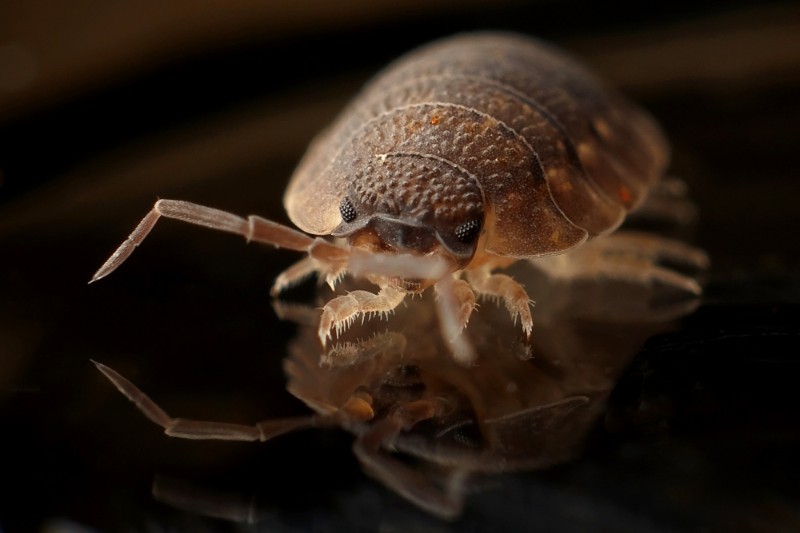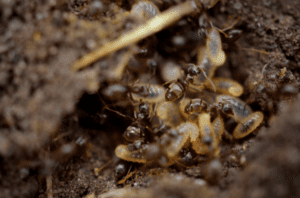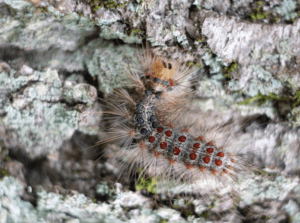
Bed bugs: the bane of home and business owners everywhere. Exceptionally resilient, these pests are almost impossible to eradicate once they’ve invaded. Not to worry, though- Twin-Boro’s expertise along with this New Jersey bed bug guide is the right combination for a bug-free property.
What is a bed bug?
Bed bugs are tiny, blood-sucking insects. Immature bed bugs, or nymphs, are difficult to see due to their tiny size and translucent yellowish-white color. Adults are around ⅜ inch in size and brownish-red in color. They are usually flat, but after taking a blood meal they plump up and become brownish-orange. Their body shape is similar to the shape of an apple seed.
Bed bugs are not as dangerous as some other pests being that they do not typically transmit diseases. However, their presence can be a serious nuisance. Their bites cause red, itchy bumps and excessive scratching, which can lead to secondary skin infections. Bites can also cause allergic reactions which may require medical attention. Too many bed bug bites can lead to anemia and asthma flare-ups.
Signs of a Bed Bug Infestation
Catching a bed bug infestation early is important. Here’s what to look for:
- Blood Stains. When bed bugs eat, some blood usually dribbles out staining furniture, linens, upholstery, and clothing. The stains appear reddish or rust-colored.
- Excrement. Bed bugs also leave behind tiny, dark reddish-brown spots which are their fecal matter. The spots may bleed on fabrics.
- Exoskeletons. As they grow, bed bugs shed the exoskeletons that are now too small for them. The exoskeletons are pale yellowish and translucent, and they look much like an actual bed bug.
- Eggs. Bed bug eggs are white in color and they have a black eye spot if they are more than 5 days old. They are roughly the size of a pinhead.
- Bites. Bed bug bites are small red spots that are swollen and very itchy. They may appear in a line, cluster, or zig-zag pattern. Typically, they are found on the arms, legs, neck, and shoulders. Bed bugs feed at night while their host is asleep and their saliva contains an anesthetic, so it is rare to feel a bed bug in the act of biting. In addition, bites may not appear on all people, or they may take up to 14 days to appear. Reactions to bed bug bites vary from person to person, so an absence of bites does not necessarily mean an absence of bed bugs.
- Odor. Bed bugs have scent glands that emit a musty odor. The odor is more potent the worse an infestation is.
- Bed Bugs. Seeing the bugs themselves is of course a definite sign of an infestation. Look for them, along with the 6 other signs, in bed sheets, blankets, mattresses, couches, living chairs, curtains, rugs and carpets, and in any cracks or crevices.
Bed Bugs In New Jersey
New York City happens to be the bed bug capital of the United States, which is bad news for New Jersey residents. Bed bugs are expert travelers, and New Jersey is a very attractive travel destination for the blood-suckers because 75% of residents are renters in multi-family buildings. That doesn’t mean they only infest apartments, though; bed bugs will invade virtually any property type. Bed bugs do not care about affluence, either. They pose as much of a risk in Short Hills as they do in Camden.
Bed bugs cannot survive below-freezing temperatures for long, so it is commonly thought that they disappear during New Jersey’s cold winters. Unfortunately, this is not true. Outdoors, they will either die or enter a hibernation-like state called diapause, but indoors they thrive. In addition to the fact that homes and businesses usually stay warm, bed sheets and blankets also get thicker providing more hiding spots and humans, a bed bug’s preferred host, tend to stay inside. All of these factors contribute to high bed bug activity during the winter, but one of the most common reasons for winter infestations is travel. Bed bugs often hitchhike into homes and businesses from hotels, rental homes, and other rental-type lodgings. They are also commonly brought home by college students during school breaks.
Bed Bug Prevention Tips From the Pros
Once they take hold in an area, bed bugs can be extremely difficult to eradicate. Here are some tips for preventing bed bugs in homes and businesses:
- Protect your bed. They are named bed bugs for a reason, after all. Since they are likely to infest beds first, consider using bed bug protective mattress covers that encompass both the mattress and box spring. In addition, be sure to wash bed linens regularly and dry them in high heat. While the sheets are off of the bed, clean the mattress, mattress protector, and pillows as well.
- Cleanliness is key. Bed bugs will infest properties no matter how clean or dirty they are. Once they have moved in, though, they are able to find far more hiding spots on a messy property. Try to minimize clutter and vacuum regularly.
- Be wary of laundromats. Shared laundry facilities are a common cause of home infestations. Always use a plastic bag to bring laundry to and from the facility. If possible, use a new bag to bring home the freshly-cleaned laundry. When your laundry is finished drying, place it immediately into the plastic bag and fold it when you arrive home. Avoid placing laundry on or in shared items like folding tables and laundry carts.
- Take travel precautions. Always perform a bed bug inspection upon arriving at your lodgings, and follow these 8 steps to avoid bed bugs while staying in hotels.
- Multi-unit buildings are vulnerable. If you live in a multi-family building like an apartment or condo, or if you rent an office in an office building, you should take certain precautions to make sure any bed bugs in a different unit do not make their way into yours. Seal all gaps that bed bugs can use to enter your unit, such as those around electrical plates and baseboards. Install sweeps on all doors, as well.
- Inspect second-hand items. Second-hand clothing should always be washed and dried in high heat right away. Second-hand furniture should always be inspected carefully for any hitchhiking bugs hiding in the cracks and creases.
Remember: catching a bed bug invasion early is essential. Don’t let these vampire pests bully their way into a full-blown infestation. If you find any signs that prevention is not working well enough by itself, call Twin-Boro today.






